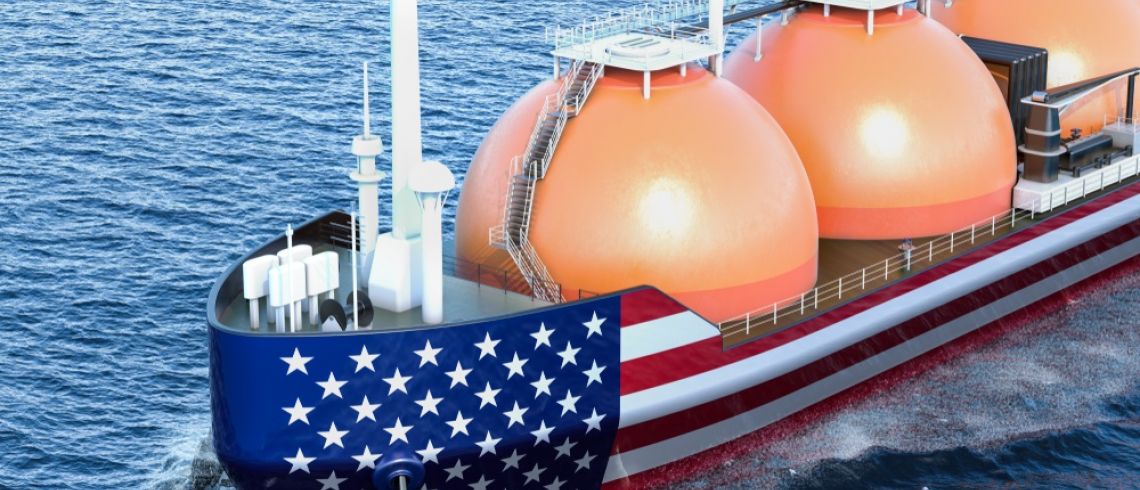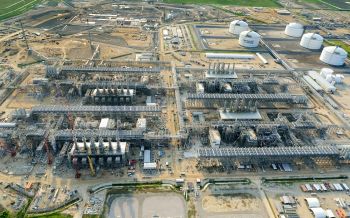US LNG cancellations are mounting, with reports suggesting as many as 45 cargoes could be culled in July as the economics of exporting gas from the US Gulf Coast continue to deteriorate and brimming storage levels limit Europe’s ability to absorb LNG volumes. At 45 cancellations, US LNG buyers stand to lose ~USD 495 million in tolling fees, with many expecting cargo cancellations to persist until October.
Reports of growing US LNG cancellations emerged upon this week’s deadline for buyers to notify sellers of their intention not to lift cargoes in July. Cheniere reportedly received notice for two-thirds of the 45 cancellations – significantly more than in recent months. Cheniere has been offered a right of reply.
All US plants could receive cancellation requests, Bloomberg reported after surveying traders – who suggested the July cancellations could total 35-45 cargoes. At the higher end of the estimate, 45 culled cargoes would equate to more than half the average monthly LNG exports from the country in January, before Covid-19 began to spread globally.
US LNG cargo cancellations have been building since April, when two unnamed long-term Cheniere customers opted to cancel two cargoes – one from each of its two liquefaction plants, Corpus Christi and Sabine Pass.
So far 12 US LNG cargoes have been cancelled in May, according to reports, with ~35 cargoes expected to be cancelled in June as the Covid-19 pandemic hits gas demand and weighs on prices in major demand centres across Europe and Asia.
Futures gas prices for July show US gas benchmark Henry Hub – a major cost element of US LNG – commanding a growing premium over European benchmarks, which would disincentivise lifting cargoes.
July-dated contracts on Dutch TTF and UK NBP settled at USD 1.36/MMBtu and USD 1.16/MMBtu, respectively, on Thursday. July-dated Henry Hub settled at USD 1.85/MMBtu, leaving the 'American premium' over TTF at USD 0.49/MMBtu, and over NBP at USD 0.69/MMBtu. Henry Hub’s premium over June-dated TTF and NBP stood at USD 0.48/MMBtu and USD 0.58/MMBtu on Thursday.
The forward curve shows the American premium lasting until October, which adds credence to reports suggesting US cargo cancellations will endure through summer and potentially top more than 20 each month until the start of the winter gas storage withdrawal season, starting in October.
Asian LNG prices have rebounded from record lows, but remain too weak to support US LNG exports. CME’s Japan/Korea Marker (JKM) futures price for July settled at USD 2.10/MMBtu on Thursday, representing a premium of just USD 0.25/MMBtu – well below the cost of liquefaction and shipping.
For July, LNG exports from the US Gulf coast to Rotterdam would result in a loss of USD 2.14/MMBtu, if you include shipping as a variable cost, or USD 1.34/MMBtu if considered a sunk cost.
As for exports to Asia, the loss from shipping from the US Gulf would stand at USD 1.67/MMBtu with shipping variable, or a USD 0.07/MMBtu with shipping as a sunk cost, according to figures compiled by Gas Strategies.
Lost tolling fees could reach USD 495 million based on 45 cargoes each sized at 4 million MMBtu, at an average fee of USD 2.75/MMBtu, according to Gas Strategies.
Weighing further on gas prices in Europe are brimming storage levels across the continent, with market observers expecting Europe’s gas stores to hit tank tops in Q3’20.
Europe’s gas stores are currently 69% full, with LNG importer Portugal’s gas stores 100% full, according to data from Gas Infrastructure Europe. Germany, holding Europe’s largest gas storage capacity, is currently 81% full, with the key LNG importer the Netherlands showing gas storage is 60% filled.
Flagging flows
This week has seen feed gas deliveries to US LNG plants fall to ~5.5 Bcf/d – the lowest level in seven months as cargo cancellations gain momentum.
The rapidly decreasing flows to US LNG plants saw Goldman Sachs worsen its forecast for US LNG cancellations, with the investment bank expecting flows to US liquefiers to fall by ~3.3 Bcf/d between June-October – 1 Bcf/d more than its previous forecast.
With exports firmly out of the money and US gas demand weakened by Covid-19, the supply rejected by LNG plants could drive US gas storage levels to hit more than 4.3 Tcf by the end of summer, according to Goldman.
US storage levels are currently ~2 Tcf, with the US Energy Information Administration having forecast for the storage levels to stand at 3.8 Tcf in Q3’20.
US gas prices have been buoyed by reductions in production – particularly from oil wells with associated gas – in response to crumbling crude prices.
However, increasing LNG cargo cancellations further erodes demand, which could hit prices and in turn dent production. - ET
Subscription Benefits
Our three titles – LNG Business Review, Gas Matters and Gas Matters Today – tackle the biggest questions on global developments and major industry trends through a mixture of news, profiles and analysis.
LNG Business Review
LNG Business Review seeks to discover new truths about today’s LNG industry. It strives to widen market players’ scope of reference by actively engaging with events, offering new perspectives while challenging existing ones, and never shying away from being a platform for debate.
Gas Matters
Gas Matters digs deep into the stories of today, keeping the challenges of tomorrow in its sights. Weekly features and interviews, informed by unrivalled in-house expertise, offer a fresh perspective on events as well as thoughtful, intelligent analysis that dares to challenge the status quo.
Gas Matters Today
Gas Matters Today cuts through the bluster of online news and views to offer trustworthy, informed perspectives on major events shaping the gas and LNG industries. This daily news service provides unparalleled insight by drawing on the collective knowledge of in-house reporters, specialist contributors and extensive archive to go beyond the headlines, making it essential reading for gas industry professionals.






